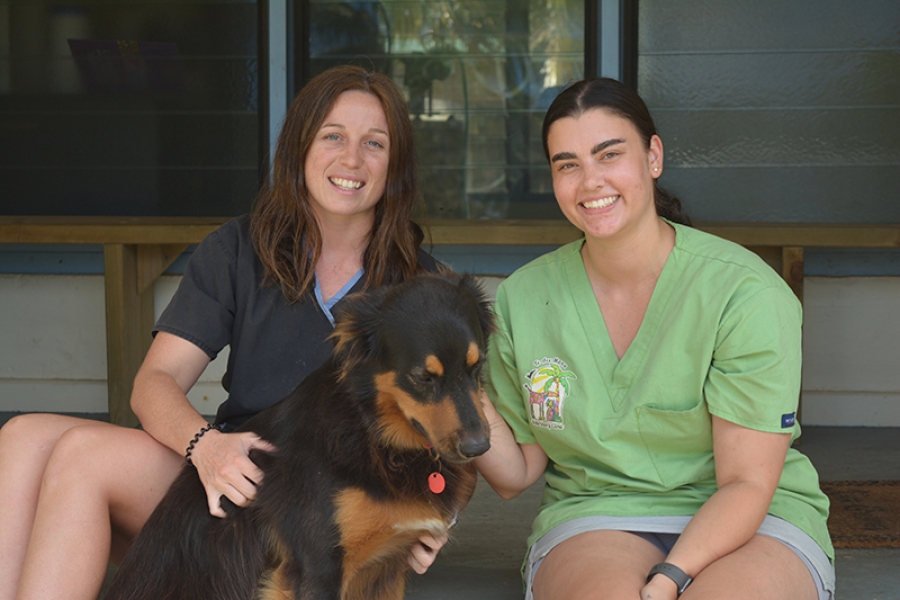Eat, Sleep, Play, Repeat.
Wednesday 29 September 2021 | Written by Dr. Ellen McBryde | Published in Opinion, Pet Talk
You’ve decided to adopt a puppy - so, what next? Ensuring your puppy’s first few weeks in its new home are as positive as possible, is critical to them growing up calm, confident, and open to new people and experiences. Dr Ellen McBryde looks at some key training tips to help you give your pup a great start in life.
Puppies (and kittens) have what is known as a ‘socialisation period’, which lasts until they are around 14 weeks of age. This is an essential learning phase for young animals, and has a significant effect on their behaviour down the track. It’s also an important period of bonding between you and your new family member. Although raising a puppy can be exhausting at times, consistency is key and will pay off in the long run.
Mouthing, or play-biting, is a normal developmental behaviour for puppies. But their sharp little teeth can hurt! If your puppy mouths your skin, try yelping like another puppy would.
This tells your puppy that they’re biting too hard. If they don’t stop? Ignore them. This will teach them that play-biting ruins the fun. You can also try giving them something else to chew on, like a treat or toy.
Chewing is another normal behaviour - it’s how your puppy explores its new world. Dogs will be ‘teething’ from around 4 to 6 months of age. At this time, chewing usually increases as it helps to relieve the associated discomfort. Rule number one? Keep easily chewable items (like jandals) up high or out of reach - of course, this can take some getting used to. If you do catch your puppy with something they shouldn’t be chewing on, calmly take it away and offer them an exchange. It’s all about teaching them what they can and can’t do. Remaining calm is important. Too much excitement and your puppy might think it’s a game, which will only encourage them. Punish them, and they will only learn to hide the behaviour from you. Why are shoes so popular you might ask? They smell great!

Veterinarians Ellen McBryde and Katie Bradley with Te Are Manu's clinic dog Sonny. 19112031
Toilet training is a big one! Make sure you’re always supervising your puppy when they’re inside, and take them outside every couple of hours, as well as after eating, sleeping, or playing. Have an area outside that you regularly take them to so they learn where to go.
Give them lots of praise if they do the right thing. If they do the wrong thing? Calmly take them to the right place and start praising them for doing the right thing in the right place. You can even try using trigger words (like telling them to ‘sit’) when they go - you just might be able to get your puppy toileting on command!
Training your puppy is really all about ignoring any behaviours you don’t want, and rewarding those you do want. Punishing your pet will generally only make them fearful, and teach them to hide bad behaviour from you. Get creative with rewards! Food, praise, toys, games, attention - anything your dog enjoys. Physical and mental stimulation throughout your pet’s life will also help to reduce unwanted behaviours at home. And remember, training needs to be done in the moment (not when you find the chewed up jandal hours later) - good supervision and consistency are essential to ensuring your puppy is happy and well-behaved in its new home!














































